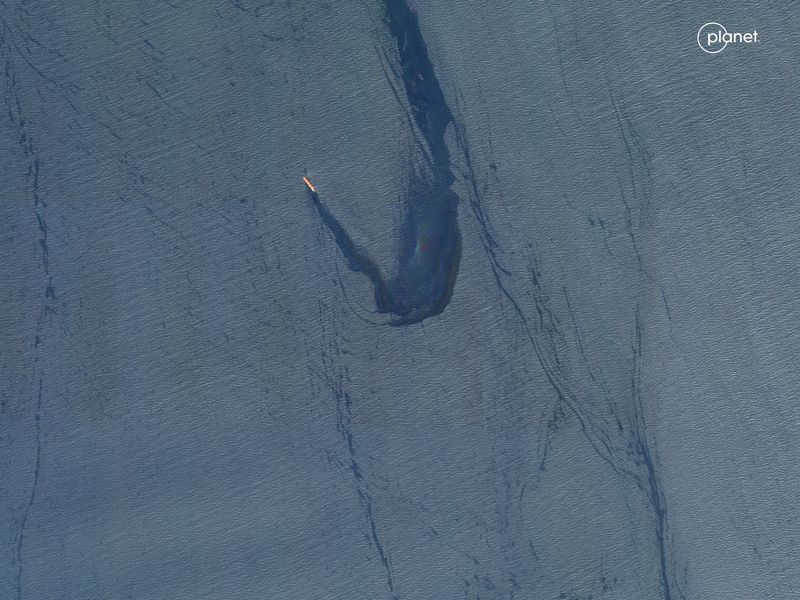
© Reuters. FILE PHOTO: A satellite image shows the Belize-flagged and UK-owned cargo ship Rubymar, which was attacked by Yemen’s Houthis, according to the U.S. military’s Central Command, on the Red Sea, February 20, 2024. Planet Labs PBC/Handout via REUTERS/File Ph
HAMBURG (Reuters) – Grain ships originating from the Black Sea or bound for Iran are about the only ones still sailing through the Red Sea as Houthi militants continue to attack vessels in the area, analysts said on Friday.
The attacks by the Iran-aligned Houthis have disrupted global shipping since November and forced firms to re-route to longer and more expensive journeys around southern Africa.
“Just about all (dry bulk grain) vessels going from the Americas and western Europe are avoiding the Red Sea, the only exception is vessels going to Iran, they’re still taking the Red Sea route when shorter,” said Ishan Bhanu, lead agricultural commodities analyst at data provider and analysts Kpler.
“All vessels we are tracking going from the Black Sea to Asia are going through the Red Sea, almost without exception,” he added.
Grain transit through the Suez Canal hit a low of 2.6 million metric tons in February, down from 5.3 million tons in February 2023, Bhanu estimated.
The United States and other countries have sent naval vessels to protect civilian ships while the U.S. and UK have launched air strikes against Houthi forces, who say they are acting in solidarity with Palestinians against Israel’s military actions in Gaza.
“The Red Sea naval operation and air strikes have been going on for weeks now and it is pretty obvious that the Houthi attacks cannot be stopped easily by military means or that commercial ships can be given blanket protection,” said one grain trader booking vessels to export cargoes from Europe.
“Many ship owners are still willing to accept the danger to their ships and vessels still can be booked for Red Sea sailings. Chinese purchases of Ukrainian corn recently are expected to transit the Red Sea.”
Source: Investing.com
























